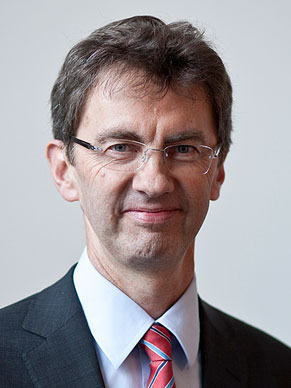If the Bundesrat (German upper house) approves the reform of the German Renewable Energy Sources Act (EEG) on Friday, then this will signal the first time that policymakers have put limits on the rate of expansion of renewable energies. At the same time, Germany is already generating up to 74 percent of its electricity from renewable energy sources at peak times. Is the energy revolution already a done deal?
No. Just because there are times when we actually meet the political target of 80 percent does not, under any circumstances, mean that the energy revolution is over. On average, we are still getting three-quarters of our electricity from fossil fuel sources, like coal or gas. The consumption of cheap coal is currently on the rise, meaning that the greenhouse gas emissions that inflict so much harm on our climate are actually increasing again. This is hardly a sign of a successful energy revolution.
In addition, we are concentrating far too much on the electricity market. In order for the energy revolution to be a real success, we also have to take a good look at the heating and transport sector. This is an area in which we really need to make much, much more of an effort so that our apartments and houses consume less energy. After all, the energy that we don't use in the first place is obviously the cleanest energy of all.
Experts are critical of the current reforms of the German Renewable Energy Sources Act (EEG). Allianz has invested around 2 billion euros in renewable energy. Is your money well invested?
We're absolutely sure that it is. We have wind and solar power facilities in Germany, France, Italy and Sweden. Nevertheless, the regulatory environment, i.e. the decisions made by policymakers, poses one of the biggest risks to renewable energy investors. This has prompted us to pursue a broad diversification strategy that covers several countries and different types of technology as well.
Back in 2000, the first German Renewable Energy Sources Act provided a real confidence boost and created a positive investment environment. This is why Germany can now afford some of the most favorable feed-in rates for wind and solar energy in Europe. The EEG reform will now allow us to manage the expansion rate better and focus on particularly favorable − i.e. windy or sun-drenched − locations in a more targeted manner in the future.
But this is just the first step: our policymakers have yet to find solutions for some of the fundamental objectives of the energy revolution. These include supply security, climate protection and, most importantly, grid adjustments to enable decentralized electricity generation from the renewable energy sources. This is not an easy task for an economy that has to be internationally competitive. We're talking about key strategic decisions for the very long term that nonetheless have to be made quickly, and about huge investment volumes. Politicians will have to be brave and show a degree of persistence. The EEG reform has, at least, raised public awareness of this debate. This is a good thing, because it's an issue that affects each and every one of us.
Are there concerns that investors will pull out?
The current reform makes sense, at least in part, as a response to the market developments. I do not expect to see investors pull out on a large scale.
But Germany is competing for investors. They invest in the places where the conditions are attractive. Local citizens' initiatives don't have this option open to them. If they can't secure attractive conditions for their energy project, then it simply doesn't materialize. The success of the energy revolution to date, however, is also due − to a considerable degree − to the commitment made by citizens. So it's important for the regulatory framework to remain fair and attractive.
From our perspective, the most important thing is that our policymakers continue to make long-term, target-oriented decisions so that we can predict what lies ahead. Rash decisions or retroactive amendments to the legislation, such as those seen in Spain, send investors fleeing, push risk premiums up and trigger an investment slump.
This would not be a welcome development from the government's perspective either. After all, the state does not have the resources to make the urgently required infrastructure investments entirely on its own steam. At the same time, we, as an insurer, are on the lookout for investment opportunities for our customers' retirement provision funds that are stable and profitable in the long run. These two aspects can be combined to the benefit of the environment and our citizens alike.
Big energy suppliers want to decommission up to one quarter of their power plants. What can policymakers do to make sure that energy supplies are not jeopardized?
To date, the electricity supply in Germany has been very stable. Even in 20 years' time, we will still have to produce around 40 percent of our electricity from coal or gas. But the way the market is working at the moment means that the revenue from this sort of electricity generation is often not sufficient to cover the costs. This is why energy supplies want to shut down unprofitable power plants. This development will give rise to serious electricity supply risks in the long run. Our policymakers are now called upon to pick up where the reform of renewable energy subsidies left off: by addressing the long-term financing of technology to bridge the gap, such as gas power plants, as well as issues like energy efficiency and grid expansion.
